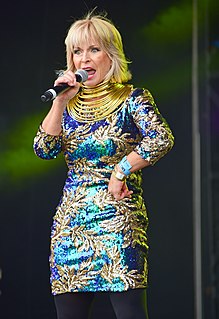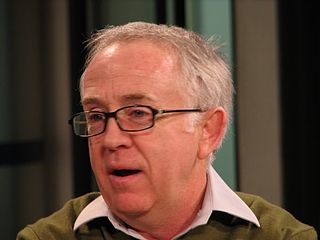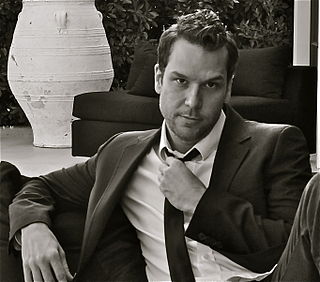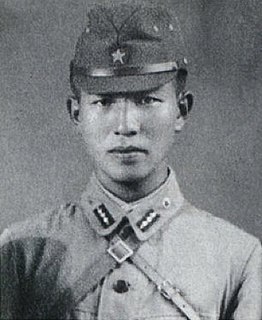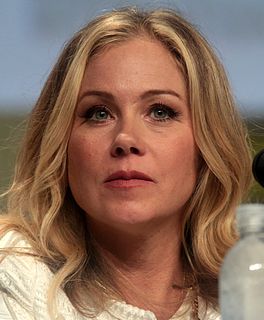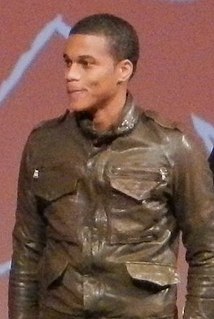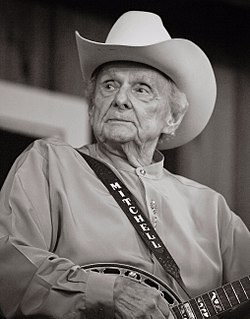A Quote by Bernie Siegel
I was born an ugly duckling due to my mother's ill health. She wasn't supposed to be pregnant, there were all kinds of complications, she couldn't survive a cesarean section etc. She said, "They didn't hand me a child, they handed me a purple melon." I heard that when I had grown up and had no idea of the whole story because the family album had pictures of a covered carriage and my mother smiling so I assumed I was asleep.
Quote Topics
Album
All Kinds
Asleep
Assumed
Because
Born
Carriage
Cesarean
Child
Complications
Covered
Due
Etc
Family
Grown
Had
Hand
Handed
Health
Heard
Idea
Ill
Ill Health
Kinds
Me
Mother
No Idea
Pictures
Pregnant
Purple
Said
Section
She
Smiling
Story
Supposed
Supposed To Be
Survive
Ugly
Ugly Duckling
Up
Were
Whole
Related Quotes
The idea of the book ["The Japanese Lover"] came in a conversation that I had with a friend walking in the streets of New York. We were talking about our mothers, and I was telling her how old my mother was, and she was telling me about her mother. Her mother was Jewish, and she said that she was in a retirement home and that she had had a friend for 40 years that was a Japanese gardener. This person had been very important in my friend's upbringing.
Insofar as she recognized at all that she was dreaming, she realized that she must be exploring her subconscious mind. She had heard it said that humans are supposed only to use about a tenth of their brains, and that no one was really clear what the other nine tenths were for, but she had certainly never heard it suggested that they were used for storing penguins.
As a child, Kate hat once asked her mother how she would know she was in love. Her mother had said she would know she was in love when she would be willing to give up chocolate forever to be with that person for even an hour. Kate, a dedicated and hopeless chocoholic, had decided right then that she would never fall in love. She had been sure that no male was worth such privation.
A lot of people say that Eleanor Roosevelt wasn't a good mother. And there are two pieces to that story. One is, when they were very young, she was not a good mother. She was an unhappy mother. She was an unhappy wife. She had never known what it was to be a good mother. She didn't have a good mother of her own. And so there's a kind of parenting that doesn't happen.
My mother had found this album of all these old slides from the '50s of me as a kid and I said, 'We should have these made into pictures because the color's so beautiful.' There were pictures of me from 1955 as a little baby wearing all these elaborate outfits, and in these pictures was this amazing story of a gay man and his mother.
Billy covered his head with his blanket. He always covered his head when his mother came to see him in the mental ward - always got much sicker until she went away. It wasn’t that she was ugly, or had bad breath or a bad personality. She was a perfectly nice, standard-issue, brown-haired, white woman with a high school education. She upset Billy simply by being his mother. She made him feel embarrassed and ungrateful and weak because she had gone through so much trouble to give him life, and to keep that life going, and Billy didn’t really like life at all.
...fact was she knew more about them than she knew about herself, having never had the map to discover what she was like. Could she sing? (Was it nice to hear when she did?) Was she pretty? Was she a good friend? Could she have been a loving mother? A faithful wife? Have I got a sister and does she favor me? If my mother knew me would she like me? (140)
My mother had heard the story of Hannah and Samuel, so she prayed that if God would give her a son, she would give that son to God. That was a perfectly appropriate thing for her to do, but as I observe, she did not have to tell me she had made such a promise. In particular, she did not have to tell me when I was six.
My first banjo? My mother's sister, my aunt, lived about a mile from where we did, and she raised some hogs. And she had - her - the hog - the mother - they called the mother a sow - of a hog. And she had some pigs. Well, the pigs were real pretty, and I was going to high school and I was taking agriculture in school. And I sort of got a notion that I'd like to do that, raise some hogs. And so my aunt had this old banjo, and my mother told me, said, which do you want, the pig or a banjo? And each one of them's $5 each. I said, I'll just take the banjo.





